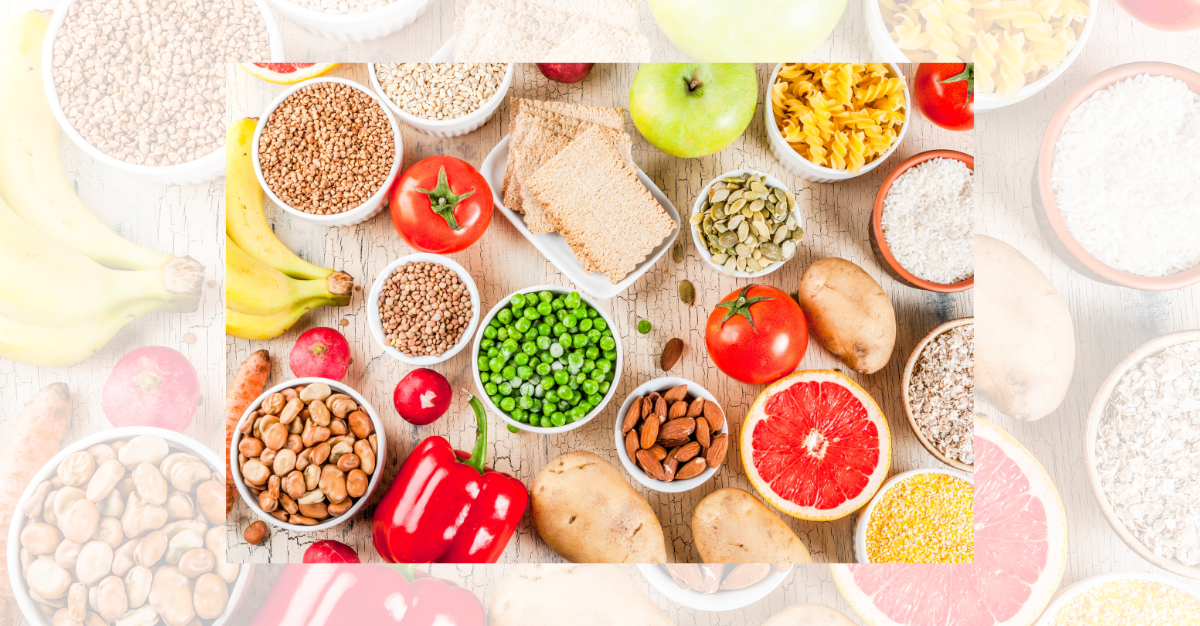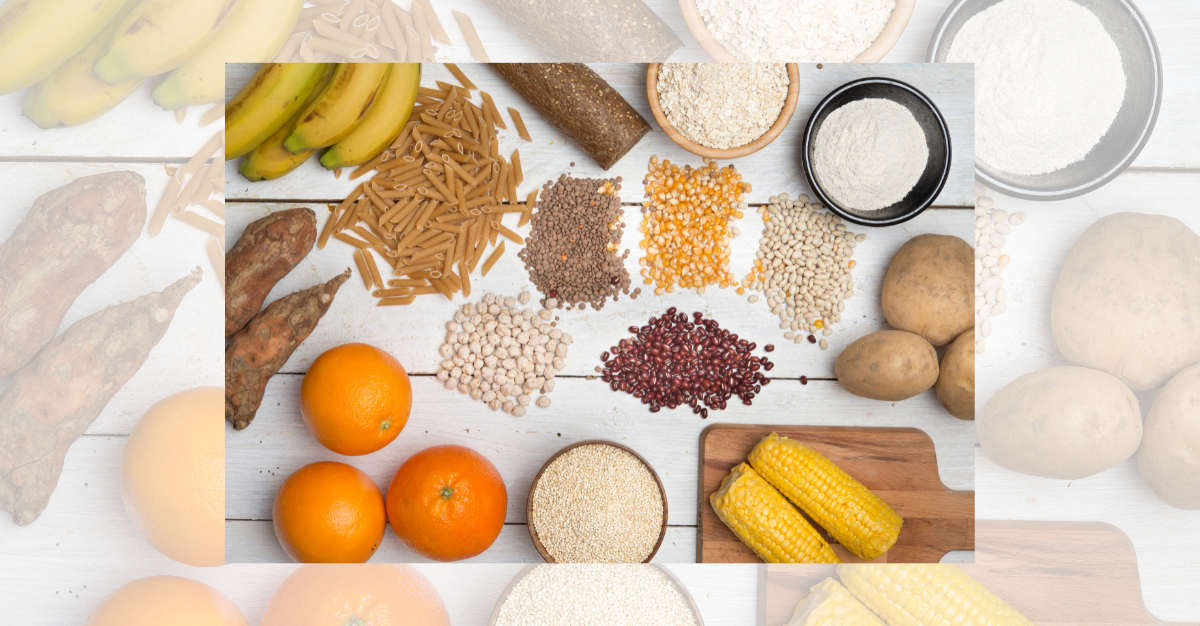Great Carbs, Good Carbs, Bad Carbs
In nutrition, carbohydrates are a major macronutrient alongside proteins and fat. Carbs can be found in healthy foods, but also have a reputation as a source of blood sugar spikes and weight gain. In this article, we will see what carbs are really all about.
Carbohydrates are a large group of compounds that naturally occur in a variety of foods. They can be broken down into three categories: sugars, starches and fibers. Healthy foods contain carbohydrates, but so do many junk foods.
Thanks to nutrient zapping, sugar filled desserts and the popularity of low carb diets, many people today correlate carbohydrates with poor health, but not all carbs are created equal. First, check out the many types of carbohydrates:
· Sugars, also called simple carbs, are short-chain carbohydrates that include glucose, sucrose and fructose. While these are found in some fruits and milk, main sources include sugary drinks and desserts. These carbs enter the bloodstream quickly, causing spikes in blood sugar, which can lead to insulin resistance (a precursor to diabetes). Fruits are the healthiest of the simple carbs because they also have fiber to slow the absorption of sugar into the bloodstream.
· Complex carbs contain a combination of carb types and are beneficial for your health. The combination of nutrients and fiber helps slow the absorption of glucose into your bloodstream, and includes foods such as sweet potatoes, whole grain breads, bananas, berries and greens.
· Starches are long chains of glucose molecules that are broken down during digestion. Some starches found in whole foods like sweet potatoes and whole grain breads are excellent sources of vitamins, minerals and fiber, but starches like white bread lack fiber and nutrients.
· Fibers are a form of carbs that do not break down. Cellulose is an insoluble fiber that is the main constituent of plant cell walls and vegetable fibers. It is found in cruciferous vegetables, whole grains, squash and sprouts. Soluble fiber, on the other hand, promotes healthy bacteria in the digestive tract and can help remove some unhealthy substances, like cholesterol. Some foods that contain soluble fiber include beans, brussels sprouts, sweet potatoes, turnips, pears and figs.
Do We Really Need Carbs?

Carbs are generally considered fuel for the body because they are broken down and transformed during digestion into glucose, which the body uses for energy. Some carbs may be turned into glycogen and stored in fat to be used as energy later. But, not all carbs function like this.
As mentioned above, some carbs provide energy, but others are broken down into either soluble or insoluble fiber. Our bodies rely on fiber to maintain healthy digestion by replenishing healthy bacteria and removing waste. Fiber can lower the risk of certain chronic diseases and prevent constipation.
Then there are refined carbs that truly lack health benefits. Sometimes referred to as simple carbs, these are foods that have been stripped of fiber and most nutrients. Refined carbs include sugar, high fructose corn syrup (HFCS), and white flour products like bread and some cereals. Most of these foods are considered empty calorie foods.
The Right Carbs are Necessary for Good Health
The daily recommended amount of carbohydrates required to reduce the risk of chronic disease is not measured in quantity. Instead, carbs are measured by their ratio to the total number of calories consumed, relative to the other macronutrients. For the average, healthy adult, the ratio of macros should be as follows: 45-65% carbs, 10-35% protein and 20-35% fat. Unfortunately, this description is not clear on the type of carbs, which may account for some of the confusion about whether carbs are healthy or not.
When it comes to choosing carbohydrates to fit into a healthy nutrition plan, judge the carb by its type. Most health benefits come when sugars from carbs are slowly absorbed into the bloodstream, while avoiding blood sugar spikes, and the best way to achieve this is to use plant foods and minimally processed grains as your source of carbs. Minimize health risks of simple carbs by avoiding refined and processed carbs like white breads or desserts.
Great Carbs, Good Carbs and Bad Carbs
Now that you know the function and health benefits of carbohydrates, it’s time to break them down. Great carbs can be consumed daily, good carbs should be consumed sometimes, and bad carbs should be avoided or at least rarely consumed.
Great Carbs are the best source of fiber and retain their nutrients because they are either not processed or minimally processed. These are great sources of nutrition because they come from whole foods. Some great carbs include leafy greens like spinach, romaine lettuce and kale, cruciferous vegetables such as broccoli, brussels sprouts, cabbage, cauliflower and fruits including berries and apples. Vegetables and fruits also contain plenty of enzymes, which can provide even more energy as they increase metabolism.
Good Carbs are a good source of fiber and nutrition, but may be higher in sugar or higher on the GI list (high GI foods moderately raise blood sugar). These foods can help you feel satiated well after consuming them and can be a rich source of both soluble and insoluble fibers, as well as enzymes. Good carbs include healthy foods like organic potatoes, sweet potatoes and squash. Other good carbs are whole grains like oats and wild rice, as they are minimally processed. Also included in this category are sweet fruits like bananas, papaya and pineapple, which should be limited because of their higher sugar content. And be careful with these fruits if you are diabetic.

Bad Carbs are those that should be limited or removed from a healthy diet. While some nutritional gurus claim these include grains like rice, breads and cereals, this is not always true. Limit these foods if they are overly refined, like white rice and white bread. But you can include whole grain bread, brown rice and some whole grain cereal, in limited amounts, because these are good carbs that add to your health. The main “bad carbs” to avoid include sugary drinks like soda pop, fruit juice and some sports drinks, and desserts like premade cookies, cakes and candy bars.
Conclusion
If you follow the recommended standard macronutrient split of 45-65% carbs, 10-35% protein and 20-35% fat, keep in mind a piece of whole grain bread is good, but you can get more energy spread throughout the day if you replace that with fruits and vegetables.
Overall, the carbs you choose should be in line with your health goals. Learning to love great carbs while avoiding bad ones can help you enjoy the energy and many other health benefits that carbohydrates provide.



















